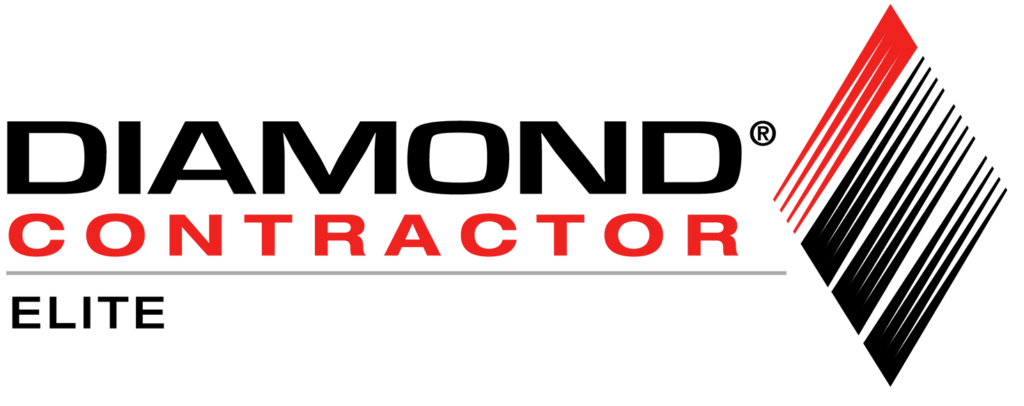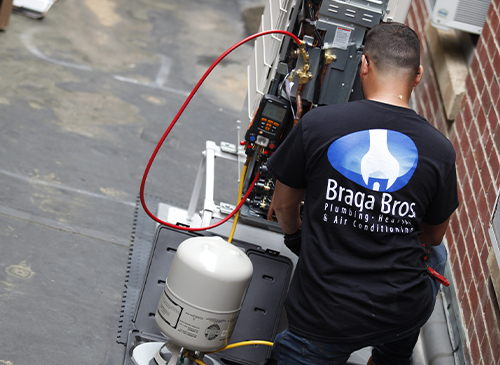Heating Service, Furnace Installation, HVAC Installation, Heater Installation & Heating Installation in Marston Hills, MA
Professional Heating Installation Services in Marston Hills, MA
When temperatures drop in Marston Hills, MA, having a reliable and efficient heating system becomes essential for maintaining comfort and safety in your home. At Braga Bros Plumbing, Heating, Air Conditioning & Electrical, we specialize in comprehensive heating installation services that ensure your property stays warm throughout the harsh New England winters. Our expertise spans across various heating technologies, from traditional furnaces to modern heat pump systems, and we understand the unique climate challenges that Massachusetts residents face year after year.
The selection and installation of a heating system requires careful consideration of multiple factors including your home’s square footage, insulation quality, existing ductwork, and energy efficiency goals. We take pride in conducting thorough assessments that help determine the most suitable heating solution for each property. Our team evaluates heat loss calculations, considers local utility rates, and analyzes your family’s specific comfort preferences to recommend systems that deliver optimal performance while managing energy costs effectively.
Understanding Modern Heating System Options
Today’s heating technology offers remarkable improvements over systems installed just a decade ago. High-efficiency furnaces now achieve Annual Fuel Utilization Efficiency (AFUE) ratings of up to 98%, meaning nearly all the fuel consumed converts directly into heat for your home. We install various heating systems including gas furnaces, oil furnaces, electric heat pumps, and hybrid dual-fuel systems that automatically switch between electricity and gas based on outdoor temperatures and energy prices.
Heat pumps have gained significant popularity in Massachusetts due to their dual functionality and impressive efficiency ratings. These systems can achieve coefficients of performance (COP) exceeding 3.0, meaning they produce three units of heat for every unit of electricity consumed. During installation, we ensure proper sizing using Manual J load calculations, which consider factors like window orientation, insulation R-values, and air infiltration rates. This detailed approach prevents the common problem of oversized systems that cycle frequently, leading to uncomfortable temperature swings and reduced equipment lifespan.
The Installation Process and Technical Requirements
Our heating installation process begins with a comprehensive evaluation of your existing infrastructure. We inspect electrical panels to ensure adequate capacity for new equipment, assess ductwork for proper sizing and sealing, and evaluate ventilation requirements to maintain indoor air quality. Massachusetts building codes require specific clearances around heating equipment, proper combustion air supply for gas and oil systems, and compliance with efficiency standards outlined in the state’s energy conservation code.
During installation, we focus on critical details that impact long-term performance and reliability. Proper refrigerant charging for heat pump systems requires precise measurements and adjustments based on line set lengths and outdoor temperatures. Gas piping must be sized correctly to deliver adequate fuel pressure while meeting safety requirements for materials and connections. We install condensate management systems for high-efficiency furnaces, ensuring proper drainage and preventing water damage. Our technicians calibrate thermostats and zone controls, programming setback schedules that maximize comfort while minimizing energy consumption.
Energy Efficiency and Cost Considerations
Massachusetts residents benefit from various incentive programs that offset heating system upgrade costs. The Mass Save program offers rebates ranging from $500 to $10,000 depending on the system type and efficiency level selected. We help navigate these programs, ensuring all necessary documentation is completed for rebate eligibility. Federal tax credits currently cover up to 30% of heat pump installation costs, making these systems increasingly attractive for homeowners seeking long-term savings.
Operating costs vary significantly between heating system types. Natural gas systems typically cost $800 to $1,500 annually for average-sized homes in Massachusetts, while oil systems may run $1,500 to $2,500 depending on market prices. Electric resistance heating often proves most expensive at $2,000 to $3,500 yearly, though heat pumps can reduce these costs by 50% or more. We provide detailed operating cost projections based on your specific usage patterns and local utility rates, helping you make informed decisions about equipment selection.
Maintenance Requirements and System Longevity
Proper installation establishes the foundation for reliable heating system operation, but ongoing maintenance determines actual equipment lifespan. We configure systems with accessible service points, install high-quality filtration systems, and provide comprehensive documentation of all installation parameters. Modern furnaces typically operate reliably for 15 to 20 years when properly maintained, while heat pumps average 12 to 15 years of service life.
We believe the values that support a family should also be respected in business relationships, which is why we establish long-term partnerships with our clients through maintenance agreements and ongoing support. Our installation process includes thorough customer education about system operation, filter replacement schedules, and warning signs that indicate potential problems. We program smart thermostats with optimal settings and teach homeowners how to adjust schedules for maximum efficiency without sacrificing comfort.
Local Climate Considerations for Marston Hills
Marston Hills experiences typical New England weather patterns with heating degree days totaling approximately 5,800 annually. This metric helps determine heating system sizing and predicts energy consumption throughout the heating season. We recommend installation timing during late summer or early fall, allowing adequate time for system commissioning before cold weather arrives. Emergency installations during winter months remain possible, though scheduling flexibility becomes limited during peak demand periods.
Installation Best Practices and Quality Assurance
Our installation procedures follow industry best practices established by organizations like ACCA (Air Conditioning Contractors of America) and comply with manufacturer specifications to preserve warranty coverage. We implement quality assurance measures including:
- Combustion analysis testing for all gas and oil equipment to verify proper burning characteristics and carbon monoxide levels
- Ductwork pressure testing to identify and seal leaks that waste energy and reduce comfort
- Electrical load verification ensuring circuits meet National Electrical Code requirements
- System commissioning procedures that document all operational parameters and performance metrics
- Customer walkthrough sessions explaining system features, maintenance requirements, and warranty terms
It takes dedication, commitment and respect to embrace a partnership for both parts to grow together, and we demonstrate these values through meticulous attention to installation details. Our technicians undergo continuous training on emerging technologies and installation techniques, ensuring we deliver cutting-edge solutions that meet evolving efficiency standards and customer expectations. Whether you’re replacing an aging furnace or installing heating in new construction, we approach each project with the same commitment to excellence that has defined our reputation throughout the region.



